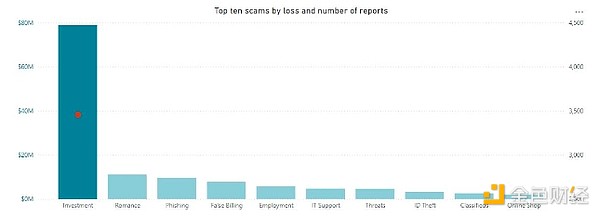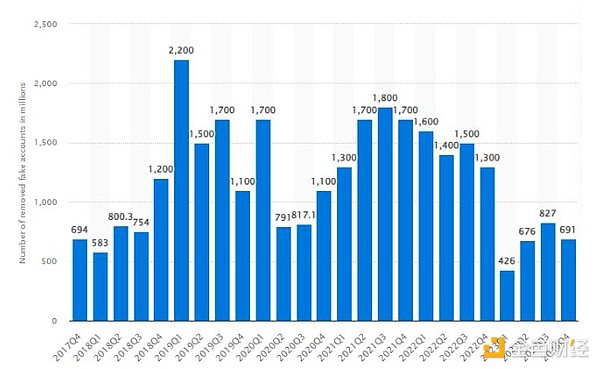Author: Stephen Katte, CoinTelegraph; Compiler: Deng Tong, Golden Finance
According to preliminary research by Australia's competition regulator, more than half of the crypto ads on Facebook are either scams or violate Meta's policies.
In 2022, the Australian Competition and Consumer Commission (ACCC) took Facebook's parent company Meta to court, accusing the company of "aiding and abetting" celebrity crypto scam ads on Facebook. A hearing date has not yet been set.
In a recent filing with the Federal Court, the ACCC claimed that in a preliminary analysis of crypto ads on the platform, more than 58% of the ads reviewed violated "Meta's advertising policies or may involve scams."
The ads promote crypto investment scams and use images of well-known Australians such as entrepreneur Dick Smith, billionaire former casino executive James Packer, Hollywood actors Chris Hemsworth, Mel Gibson, Nicole Kidman, Russell Crowe and former politician Mike Baird.
While no specific figures were mentioned for the losses that may have been caused by these scams, Australian government website Scamwatch shows that investment scams remain the top way Australians lose money.

Investment scams have siphoned more cash from Australians than any other scam in 2024. Source: Scamwatch
So far, there have been 3,456 reports of investment scams in 2024, with losses totaling more than $78 million.
The ACCC said it found 600 advertisements during its investigation. However, it is now focusing on just 234 ads, and claims it can find other celebrity scams following the investigative process of the case.
In December 2023, billionaire Australian mining tycoon Andrew Forrest sued Meta, alleging Facebook ads used deepfake images of him to promote scam crypto schemes. The case was initially dismissed, but a US judge allowed it to go to trial in June.
Meanwhile, the regulator argued that "Meta was aware that a significant portion of cryptocurrency ads on the Facebook platform used misleading or deceptive promotional practices since at least January 2018."
"Advertisers are required to agree to certain contractual terms, including compliance with Meta's advertising policies. These policies prohibit ads that use deceptive or misleading practices to promote schemes," the ACCC said.
According to the Australian regulator, Meta does have the "technical capability, or may have developed the technology" to display warnings on suspicious ads, warning users to be careful when interacting with them.
Although Meta removes individual ads after receiving complaints and sometimes bans the accounts involved, it continues to display similar ads featuring the same celebrity or other public figures and earn revenue from them.
Meta claims in its safety center that it invests in "products and support systems to stop scammers" and removes fake accounts.

In the fourth quarter of 2023, Facebook took action against 691 million fake accounts, down from 827 million in the previous quarter. Source: Statista
Statista data estimates that Facebook took action against 691 million fake accounts in the fourth quarter of 2023, down from 827 million fake accounts in the previous quarter and a high of 2.2 billion fake profiles in 2019.
 JinseFinance
JinseFinance
 JinseFinance
JinseFinance JinseFinance
JinseFinance Brian
Brian Nulltx
Nulltx Bitcoinist
Bitcoinist Bitcoinist
Bitcoinist Ftftx
Ftftx Cointelegraph
Cointelegraph Cointelegraph
Cointelegraph Cointelegraph
Cointelegraph